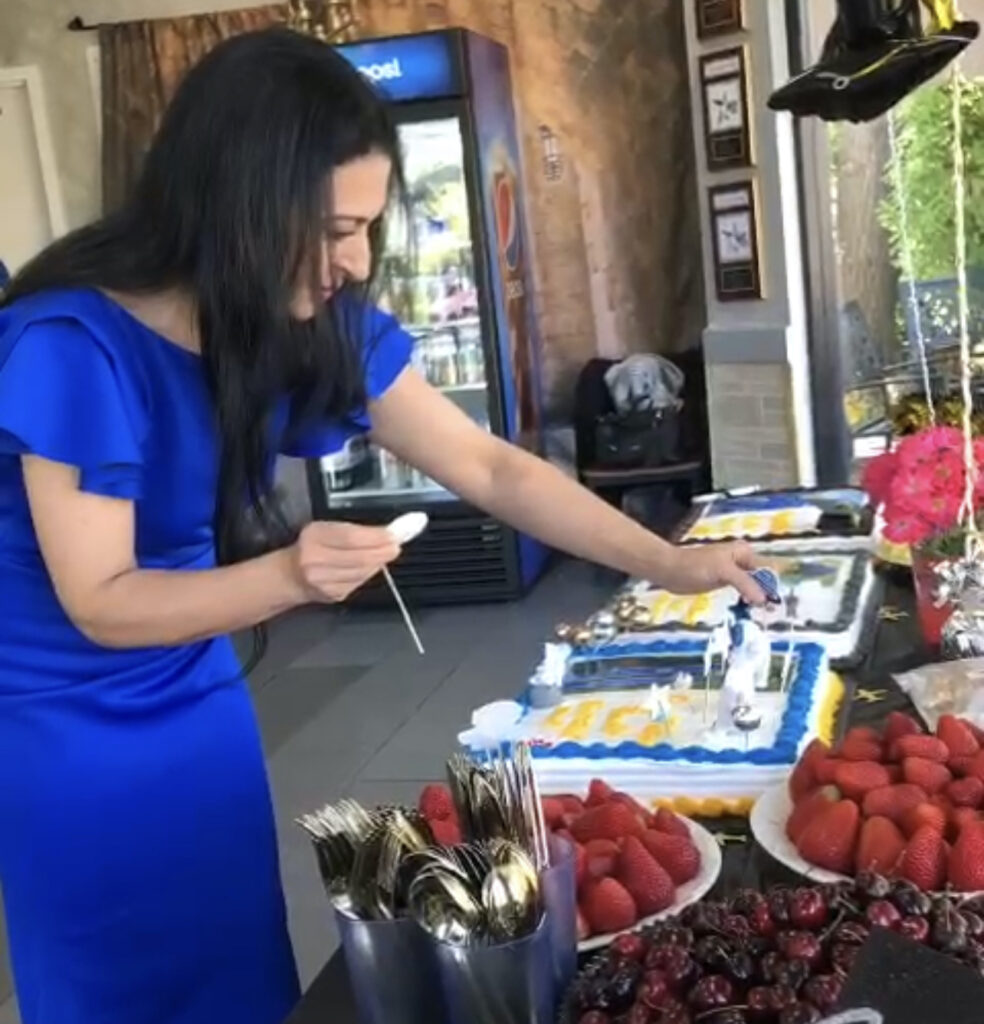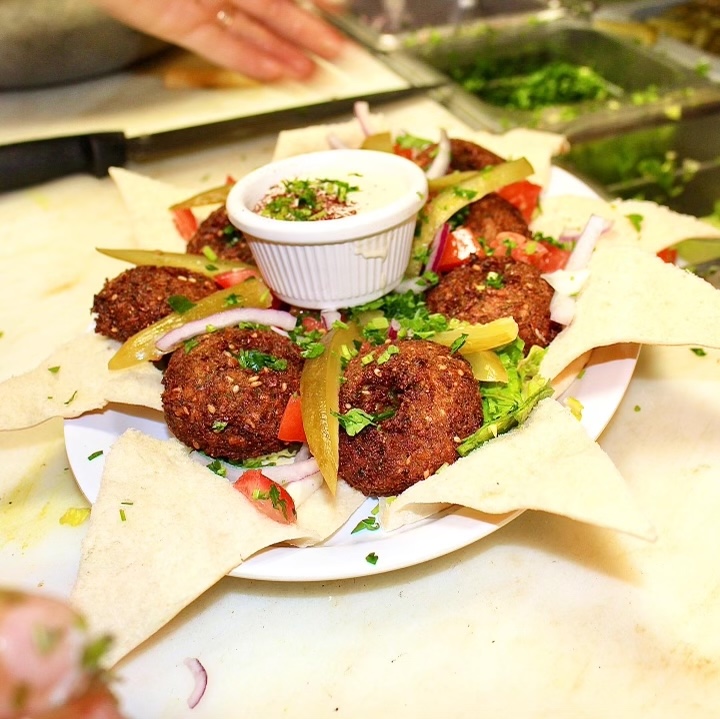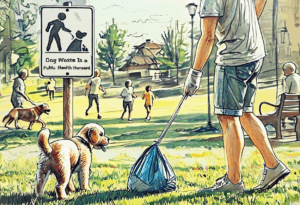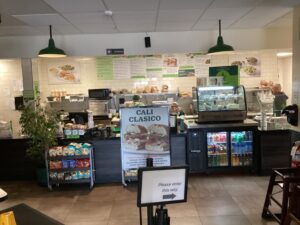
Recently, I had the wonderful opportunity to interview Nancy Annan in regard to her restaurant’s transition to reusables.
Nancy Annan is the owner of Shish Grill in San Ramon, California, a well-loved and popular Lebanese restaurant known for its welcoming atmosphere and healthy, delicious foods. Her restaurant takes Nancy back to her mother’s cooking, and she loves sharing Lebanese dishes with the people around her.
In addition, Nancy’s restaurant has taken one step better her restaurant: reducing plastic waste in disposable foodware.
Nancy and her husband, an engineer, have always been aware and concerned about their impact on the environment. They have always worried about recycling, oil, and plastic humans generate on a day-to-day basis.
And Nancy decided that she would make a change, starting with her restaurant.
She had the pleasure to meet ReThink Disposable, a program that reduces waste in local businesses, governments, and customers. This program gave Nancy many recommendations on how to reduce their use of disposable food ware items. For example, the recommendations implemented include replacing styrofoam cups, plastic lids, and disposable sauce cups with reusable ones. Customers also have to request in order for disposable items to be used for take-out. In addition, she installed signs reminding and educating customers in their restaurant.
Take a look at this case study.
Implementing ReThink Disposable’s recommendations, her restaurant has reduced her plastic packaging items by 73,559 pieces a year, and their annual waste production was cut by 350 pounds. Seventy-three thousand pieces of plastic that would have ended up in a landfill. Or three hundred fifty pounds of plastic that would have ended up floating in the ocean.
Her simple yet impactful switch from plastic to reusable dishware effectively prevented the detrimental environmental effects that plastic has on our planet.
This is not the only benefit that waste prevention has brought to Shish Grill.
Nancy calls this shift towards waste prevention a “win-win” situation. Not only did this change help the environment, but her business also saved money and gave more jobs to people.
After this switch, her restaurant saved $974 annually from plastic waste alone. Her restaurant can now allocate nearly a thousand dollars for a different and more sustainable purpose, rather than buying plastic dishware, recycling, or sending plastic to landfills.

“It was really easy,” Nancy says, “All you have to do is put what you use down on a piece of paper and see how you can switch to reusable.” For example, the alternative to styrofoam cups would be reusable cups. Nancy found it also easy to find and buy the right reusable dishware to replace the plastic. “It’s available everywhere now,” Nancy says. And it’s easy when “you know what you’re doing, and what the next step is,” especially in a busy restaurant like Shish Grill.
While some businesses may be hesitant to make this switch from plastic, Nancy points out that this saves money in the long run. Instead of purchasing $250 worth of plastic dishware every month, you could spend $79.84 to purchase 36 reusable cups and 60 reusable sauce cups. Reusable dishware can be used over and over again with no additional challenges such as recycling and landfilling.
Nancy is also aiming to change the culture and dynamic between the restaurant and the customers. She always tells customers to bring their own dishes and bags and to use fewer to-go containers. She also encourages lots of people to bring their own dishes for catering events as well. If they bring their own dishes, she will do the work and preparation for her customers, including making the presentation look pretty and delicious! “It looks a lot better, too,” Nancy adds. And this is a very valid point as food in a reusable container is inevitably more presentable than in a plastic styrofoam plate.
Even this weekend, one of Nancy’s customers is catering and bringing her own dishes and plates instead of plastic disposables. Nancy will prepare the food and presentation with the dishware given.
Nancy is also educating and training her employees not to use disposable cups and use their own reusable ones. She says that “educating employees will lead to them educating their families and doing the same thing at home.” What starts with one person may significantly impact those around them.
Nancy has always had good and strong connections with her customers. The relationship is further strengthened as customers tell her that her efforts for sustainability are something they really appreciate.
“You feel good about it,” Nancy says, “You are doing something good about the environment.”
For the future of Shish Grill’s waste prevention, Nancy says her restaurant will not stop this shift away from plastic and hopefully take an even larger step to reducing paper. Although running a restaurant without paper is difficult, Nancy hopes to reach a point of 100% reusability.
For the last interview question, I asked Nancy if she had anything else she would like to comment regarding the ongoing talks of climate change and the human impact on the planet.
Her response was truly inspiring.
“We live in a future to make it better for the next generation. We have to think about the next generation. The diseases and what’s causing what. It’s not always a big change to reduce it. If we do our part, it will help us in the long run. We are not living on a different planet, and everything adds up.”
She adds that it is extremely important for the young generations to go to school and go through the learning process. The youth must get “exposed to knowledge like this, move forward, and help environment and the city where they live in. And they teach it as they go.”
Nancy’s restaurant has transitioned to a new level of “healthy”. Not just by making healthier food but by using healthier or sustainable dishware to keep our food and planet better and healthier.
“It was rewarding in every single step. No negative in any way. Good for the pocket, good for the environment, and good for customers.”

This switch was indeed a win-win.









